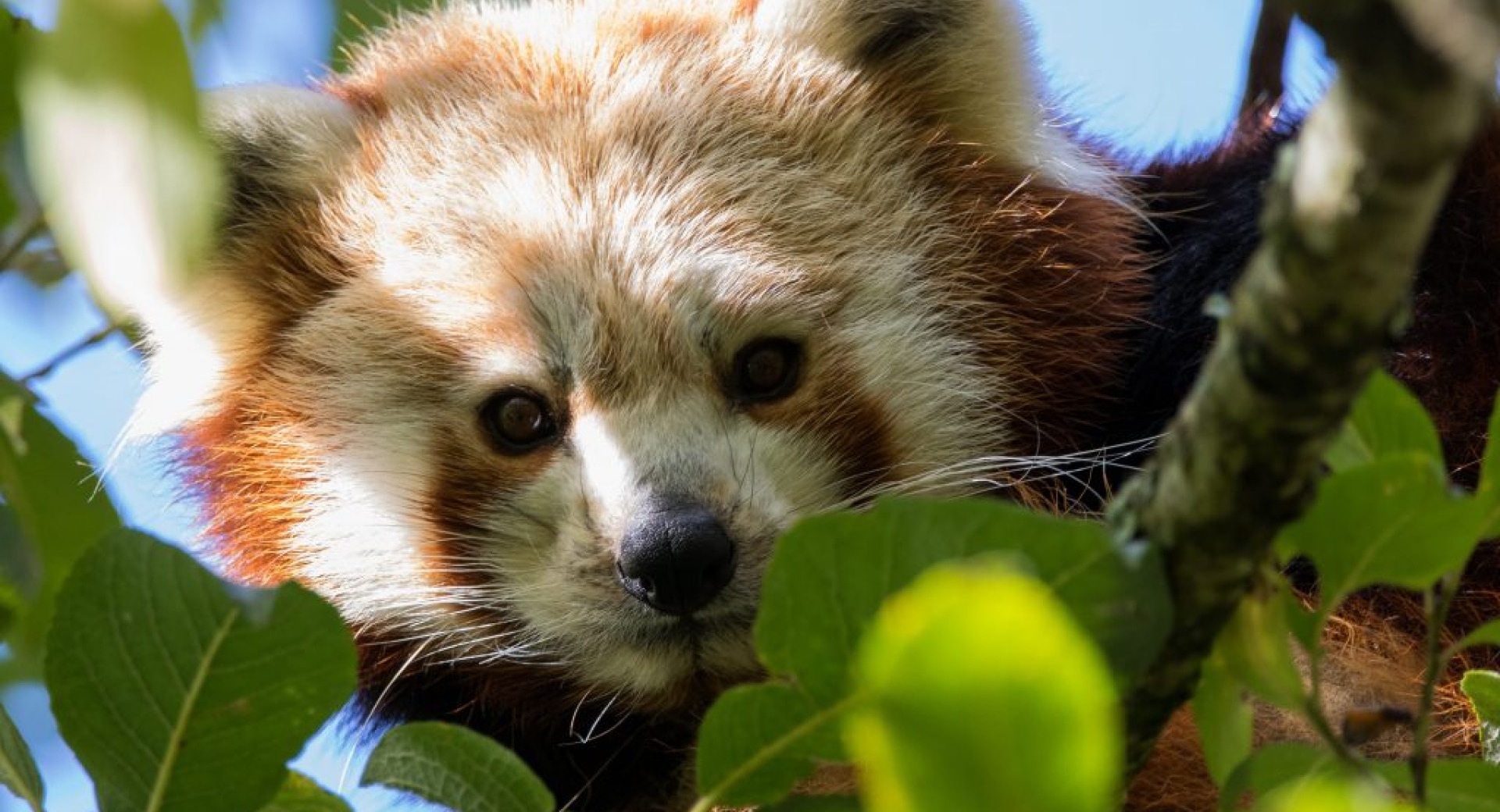
e results but it is a start: awareness of a species vulnerability to extinction and necessary protection can slow down horn and hide harvest. As the saying goes, when the demand stops, the killing can too.
In December 2017, 26 homestay owners in Nepal came together to learn best practices in ecotourism management. They visited Amaltari Madhyabarti Home Stay and Pipraha Home Stay, which are part of WWF's rhino ecotourism program.
Apart from sharing experiences in operations, financial management and marketing, homestay owners also learned how to maximize available resources and services for their business’ long-term survival.
More importantly, the dialogue was meant to help them apply this knowledge to their respective homestays and put conservation and community at the forefront of their business.
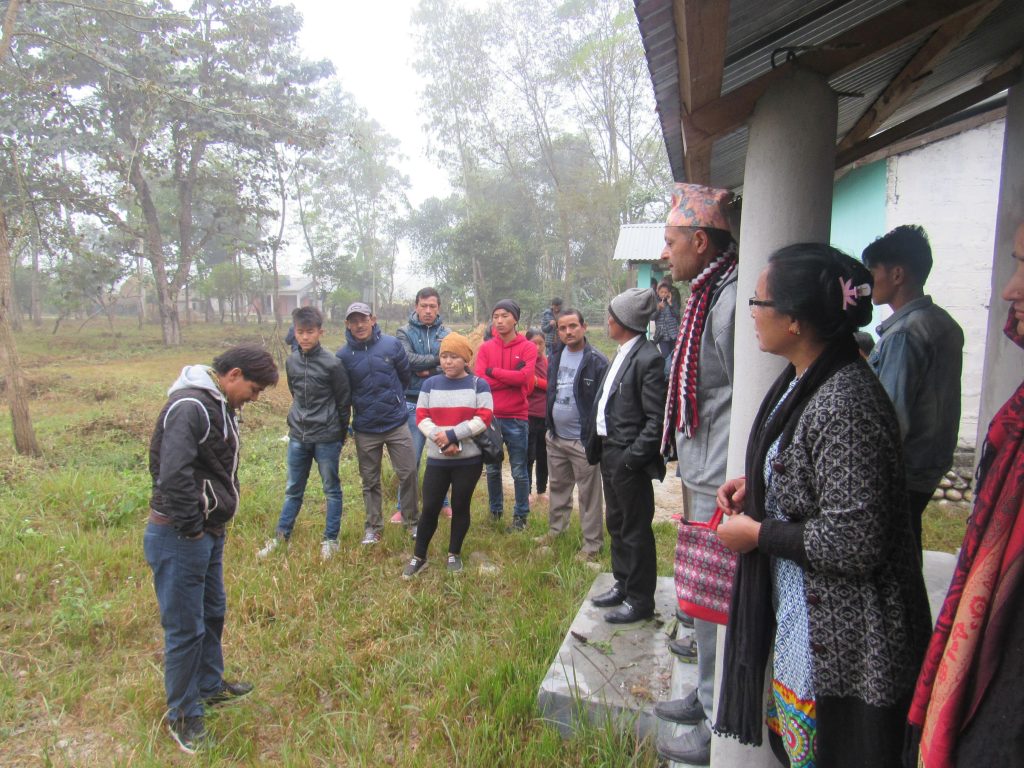 Homestay exposure visit.
Homestay exposure visit.
East of the Chitwan National Park lies Almaltari, a village that has experienced the devastation of overgrazing and illegal poaching. It is also no stranger to deforestation.
The landscape changed after the establishment of a homestay, which Mr Siman Mahato, owner of Amaltari Madhyabarti Homestay, says was an undertaking bursting with challenges galore. He elaborated on major achievements such as constructing six ponds for Bote community fish farming.
Mahato concluded his share with other activities conducted in collaboration with WWF Nepal. For example, 24 local women were able to form an independent network of ‘Naya bihani mahila samuha’ and started producing turmeric. WWF Nepal assisted by providing them with turmeric processing machines.
Participants of the Homestay Exposure Visit also went on a jeep safari where rhinos, deer, vultures, peacock and a myriad of bird species were spotted in their natural habitat. It is a reminder of how these animals—some on the verge of extinction—are better enjoyed in their own home rather than through poaching and illegal trade.
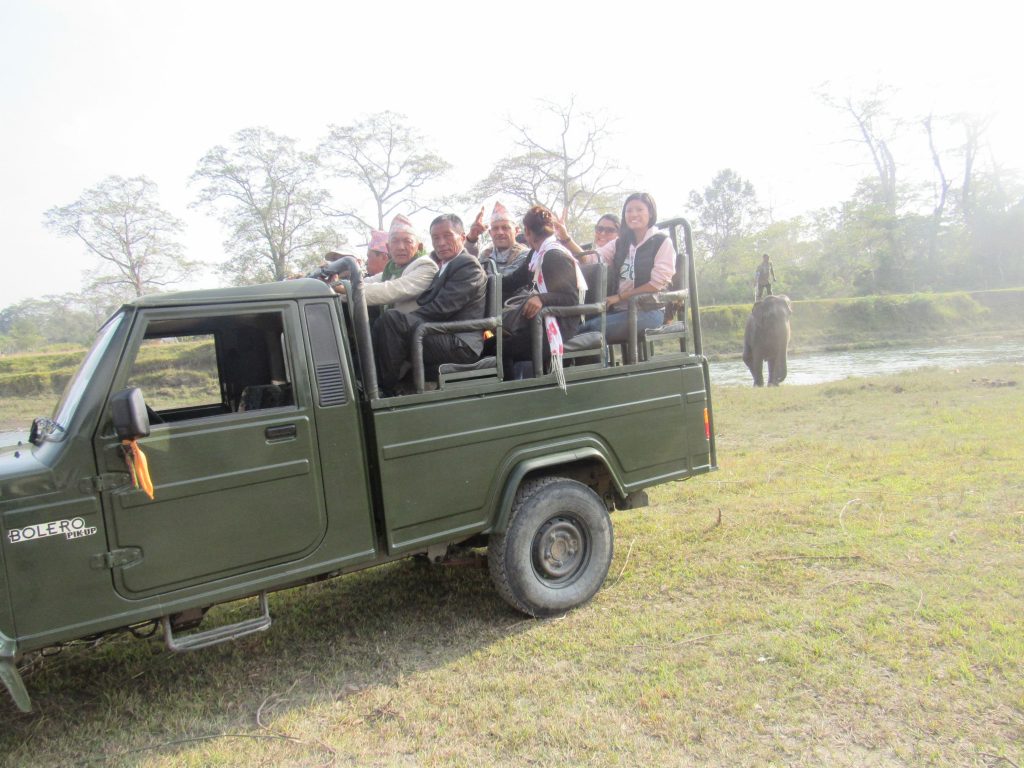 Participants on a jeep safari.
Participants on a jeep safari.
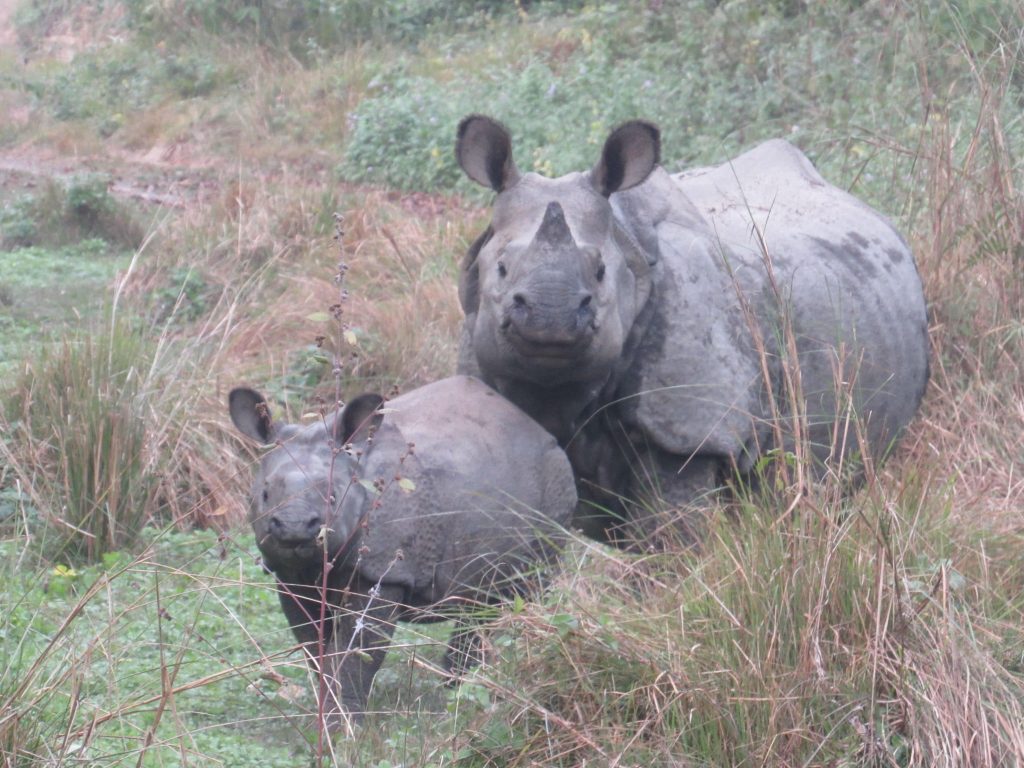 Rhinos during jeep safari.
Rhinos during jeep safari.
So, what do rhinos and red pandas have in common?
Ecotourism can be an effective solution to their preservation. For example, sign up for one of these homestays during an ecotrek, and part of your contribution goes towards conserving the area’s biodiversity and livelihood programs. Part of the revenue also funds activities that promote local culture and ensures indigenous traditions and handicrafts are preserved.
Because financial and labor resources are limited in this part of the world, it was important that participants on the Homestay Exposure Visit learn how to be resourceful. After all, their efforts at conservation secure not just their own livelihoods, but their next generation’s as well.
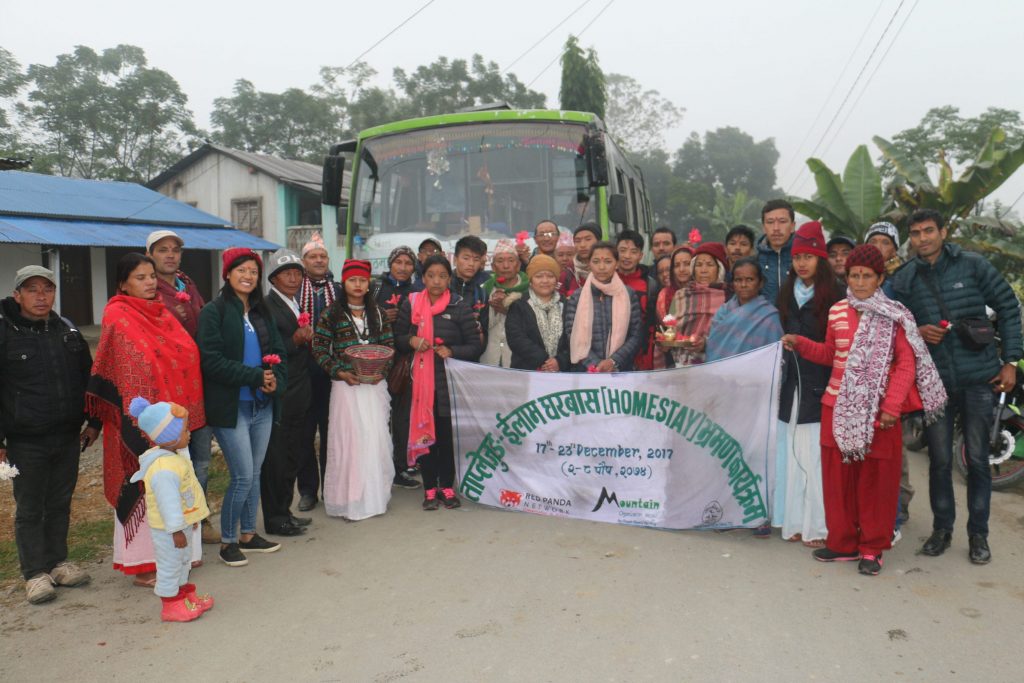 Participants of homestay training.
Participants of homestay training.
If nature trails and cosy homestays are your kind of thing, do check out our upcoming 2018 & 2019 ecotrips here.
You will enjoy hikes through some of the Eastern Himalayas’ most pristine forests, and enjoy the hospitality of village homestays. Your stay will keep wildlife wild and help rural communities earn an alternate source of income.
Zhuomin Lee
Writing and Communications Volunteer
Red Panda Network
